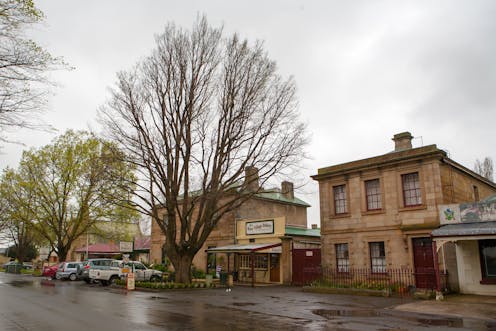Airbnb is blamed for Tasmania's housing affordability problems, but it's actually helping small businesses
- Written by Louise Grimmer, Lecturer in Marketing, Tasmanian School of Business and Economics, University of Tasmania

Housing affordability is a central issue in the Tasmanian election, but regulating Airbnb is not the answer.
Our ongoing research shows that Airbnb is beneficial for the economy, especially in remote areas. In addition to creating accommodation for tourists and providing income for hosts, we found that the recommendations Airbnb hosts provide are incredibly important for small businesses.
A 2017 Anglicare report acknowledged that Airbnb might be taking some of the private rental market in Tasmania but it didn’t have any evidence to confirm this.
Our prior research shows that shops and eateries in regional and rural areas struggle to attract visitors. The word-of-mouth marketing provided by Airbnb hosts is helping to solve this problem.
One of the Airbnb hosts in our study said:
It’s an opportunity for people to get an honest insight into where they’re staying … you might know of a local place that doesn’t have great marketing or money to spend on marketing that you know [guests] wouldn’t have found otherwise.
Read more: How Airbnb is reshaping our cities
The Tasmanian government deregulated Airbnb in 2017, allowing owners to rent up to four rooms on sharing platforms. Airbnb claims to have hosted 169,000 guests in the 12 months to January 2017. This is around 10% of all tourists to Tasmania in that period.
According to a report by Deloitte Access Economics, a majority of Airbnb listings are located outside traditional hotel districts. Airbnb guests spent an estimated A$27.3 million outside the greater Hobart region in 2015-16.
In our research, we have interviewed hosts, guests and small business operators in Tasmania. Many hosts rent out rooms that would not otherwise be available through long-term rental, which deflates some of the arguments that Airbnb is removing large portions of the supply of rental units.
Our study also confirmed Airbnb guests stayed, and spent money, in areas outside major tourist destinations. This provides opportunities for small local businesses located on the city fringe, as well as in suburban, coastal and rural regions.
Read more: Airbnb, social media and the quest for the authentic urban experience
Airbnb guests want to make deep connections with their destination. They therefore desire alternative sources of information in addition to mainstream tourism marketing. Who better to give an insider’s view than a local?
As a result Airbnb visitors are discovering more local small businesses, in a variety of locations, through word-of-mouth recommendations from Airbnb hosts.
One Airbnb guest in our study said:
I’m looking for a host to tell me what’s going on, and I would value that above any other source of information really … it makes a big difference what the host says.
The demographics of the hosts are also important to note. Many Airbnb hosts are single women. Hosting allows them to supplement their incomes and helps them pay rent or mortgages.
“I think it’s a positive way of making life a bit easier for everyone involved… it gives a sense for almost everyone to be an entrepreneur … maybe it’s a bit cheesy, but it empowers people…,” said one female host.
Read more: Airbnb and empty houses: who's responsible for managing the impacts on our cities?
As the number of Airbnb hosts grows across Tasmania, local councils, residents, tourism and hospitality lobby groups and small accommodation businesses continue to grapple with its impact.
Some on Hobart City Council want to regulate and tax Airbnb to discourage the conversion of rental properties into short-term rentals.
The Tasmanian Greens have promised to regulate Airbnb if they are successful in the upcoming election.
But Tasmania is experiencing an acute tourist accommodation shortage thanks to recent improvements in wilderness infrastructure and the “MONA effect”, among other factors.
Airbnb not only utilises existing infrastructure to meet this demand, our research shows it empowers female hosts and encourages tourists to discover, visit and spend in remote communities.
Authors: Louise Grimmer, Lecturer in Marketing, Tasmanian School of Business and Economics, University of Tasmania





